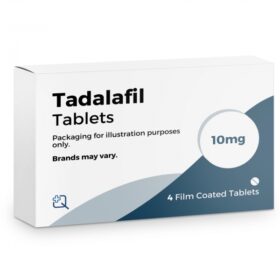- Your cart is empty
- Continue Shopping

Product
Diazepam (Valium)
$150.00 – $400.00
Diazepam, commonly known by its brand name Valium, is a medication belonging to the benzodiazepine class. It is widely used for its anxiolytic (anti-anxiety), sedative, hypnotic, anticonvulsant, and muscle relaxant properties. Diazepam is prescribed to treat a range of conditions, including anxiety disorders, alcohol withdrawal symptoms, muscle spasms, seizures, and as a pre-anesthetic medication.
Diazepam (Valium)
Diazepam, commonly known by its brand name Valium, is a medication belonging to the benzodiazepine class. It is widely used for its anxiolytic (anti-anxiety), sedative, hypnotic, anticonvulsant, and muscle relaxant properties. Diazepam is prescribed to treat a range of conditions, including anxiety disorders, alcohol withdrawal symptoms, muscle spasms, seizures, and as a pre-anesthetic medication.
Diazepam, including Valium, works by enhancing the effects of gamma-aminobutyric acid (GABA), a neurotransmitter that helps to regulate brain activity. By increasing GABA activity, diazepam helps to reduce excessive brain activity, promote relaxation, and exert its therapeutic effects.
Valium is available in various formulations, including oral tablets, injectable solutions, and rectal gels. The dosage prescribed will depend on the specific condition being treated, the individual’s response to the medication, and other factors. It is important to follow the prescribed dosage and instructions provided by the healthcare professional.

It can cause certain side effects, particularly with higher doses or prolonged use. Common side effects may include drowsiness, dizziness, impaired coordination, and cognitive difficulties. Other potential side effects may include fatigue, muscle weakness, and changes in appetite. It is important to report any concerning or persistent side effects to a healthcare professional.
Long-term use or high doses of Valium can lead to tolerance, dependence, and withdrawal symptoms. Tolerance refers to the body becoming accustomed to the medication, requiring higher doses to achieve the same effect. Dependence refers to the body relying on the medication, and abrupt discontinuation can result in withdrawal symptoms. Therefore, Valium is typically prescribed for short-term or intermittent use to minimize these risks. Gradual tapering under the guidance of a healthcare professional is recommended when discontinuing the medication.

Valium, like other benzodiazepines, is classified as a controlled substance due to its potential for abuse, dependence, and addiction. Misuse or overuse of Valium can lead to serious health consequences. It should only be used under the supervision and guidance of a healthcare professional.
This drug can interact with other substances and medications. Combining Valium with alcohol or other central nervous system depressants can increase the risk of respiratory depression and other adverse effects. It can also interact with certain medications, including other benzodiazepines, opioids, antidepressants, and antifungal medications. Informing the healthcare professional about all current medications and medical conditions is crucial to minimize potential interactions.
Certain precautions and contraindications are associated with Valium. It should not be used by individuals with a known hypersensitivity to benzodiazepines or diazepam itself. It is contraindicated in individuals with acute narrow-angle glaucoma or a history of substance abuse. Valium can cause drowsiness and impair cognitive and motor functions, so it is important to avoid activities that require mental alertness, such as driving or operating machinery, until the individual’s response to the medication is known.

Additional Information
| Quantity | 25 tabs, 50 tabs, 100 tabs |
|---|











